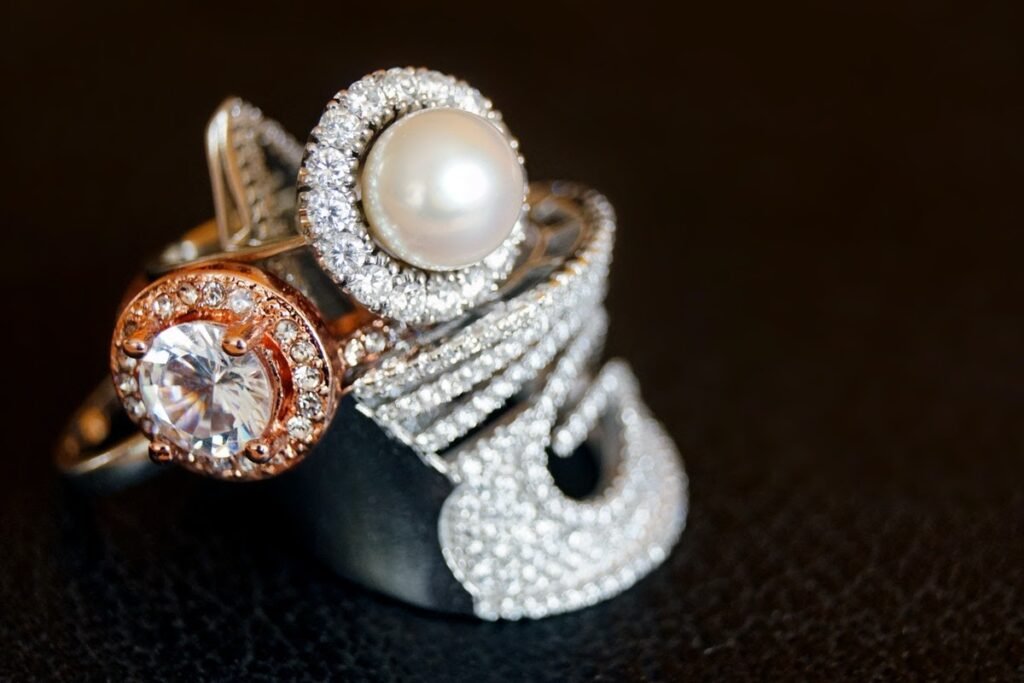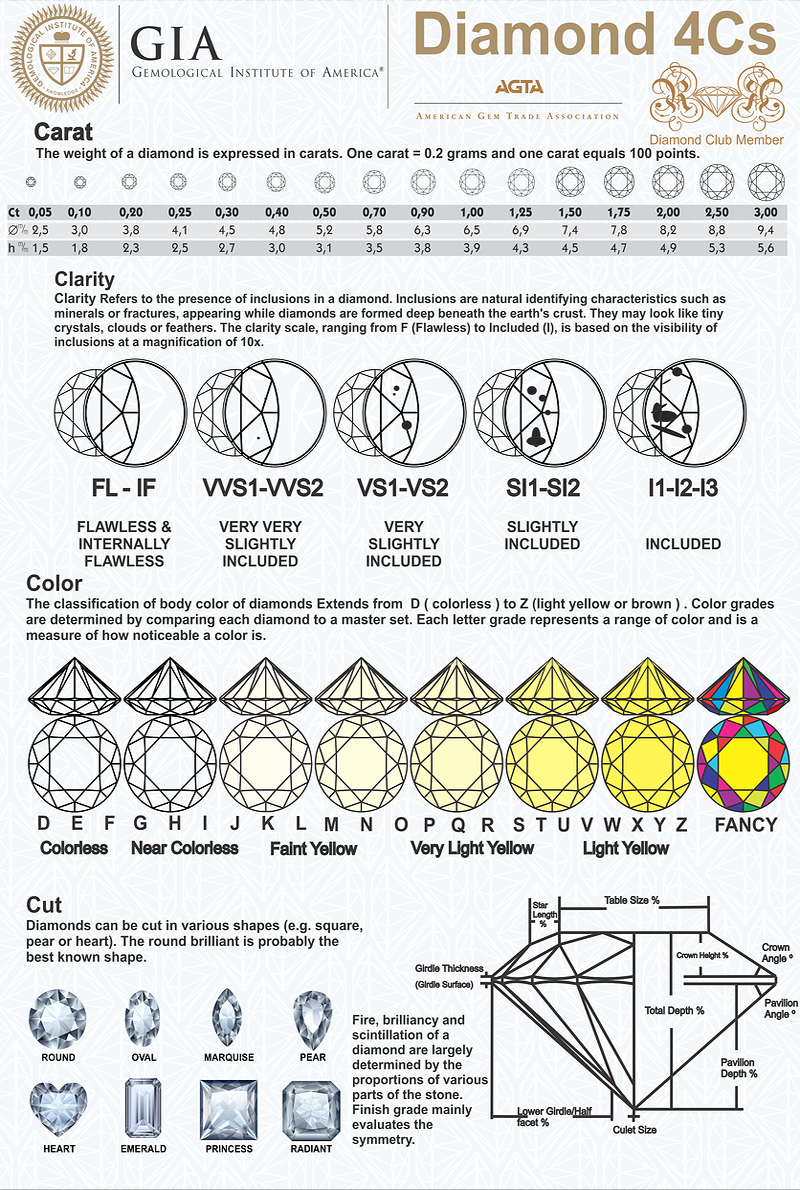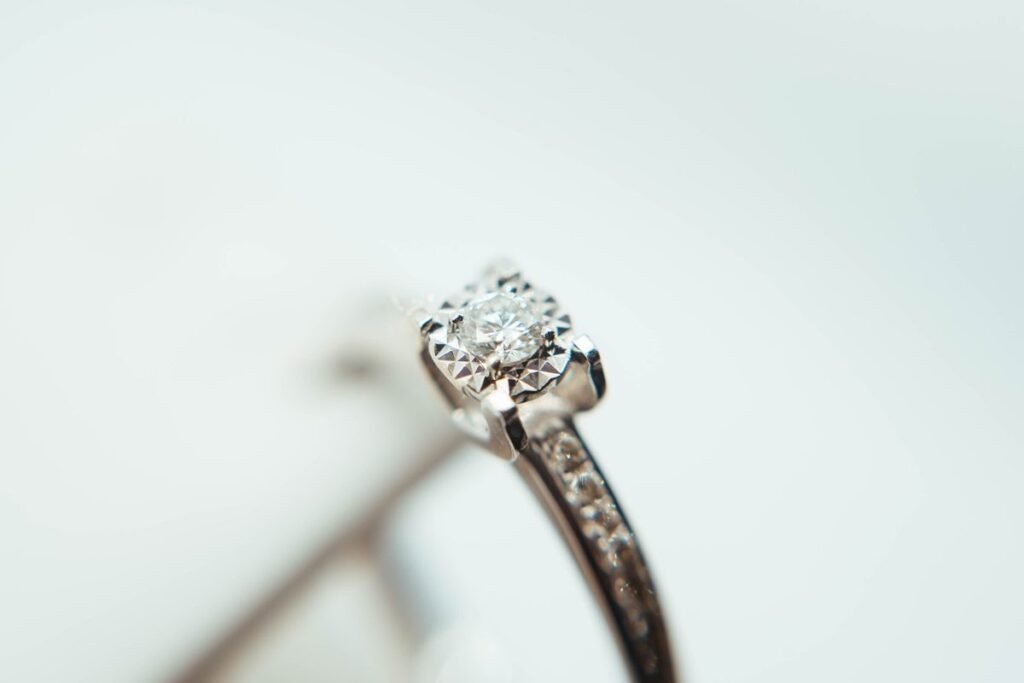Planning to purchase a diamond is equivalent to shelling out your hard-earned cash for a lifetime investment. This fact alone dictates how cautious you should be before you sign that dotted line and complete your purchase. And then there is the problem of bad diamond labs that can take advantage of inexperienced or easily trusting buyers.
Imagine this. You saved a portion of your savings so you can buy a princess-cut diamond for your partner. It might be for a birthday, an anniversary, or a proposal. Then, you get a certificate for your diamond as proof of its authenticity. However, after the purchase, you find out that the certification you got is from a bad diamond lab, and your diamond is not what it’s supposed to be.
Remember, diamonds are priceless possessions, and acquiring them is a process you have to be very careful about. There are unscrupulous people who make false claims just to be able to close a sale. So, before you make any purchase, you must arm yourself with knowledge about such shady deals.
But don’t fret as you’re in for a treat. We have created this comprehensive guide on the top things you should know about diamonds and what diamond laboratories you can trust. Hopefully, by the end of this reading, you’ll be able to identify bad lab diamonds and avoid them altogether.
Bad Diamond Labs: How to Avoid Them

Acquiring diamonds is a big deal and the possibility of getting ripped off can be scary. It might be that you are just starting your diamond collection, and are not too knowledgeable of the ins and outs of the industry. You may never even have seen a real diamond up close before. These things happen and you are not alone—the reason why a diamond certification is essential when investing in one.
What is a Diamond Certification?
As a consumer, here’s what you can do to ensure that you’re buying the real thing. Ask your jeweler for a diamond certification. This is a document created by a third-party laboratory that lays down everything that you need to know about the specific diamond.
As much as you meticulously study the diamond that you are buying, you should also carefully go through a diamond certification. This certificate includes the results of tests done by trained and expert gemologists, who carefully review, evaluate, measure, and scrutinize everything about the diamond.
It is important to note, though, that there are several independent laboratories that offer this kind of service. These entities follow different processes, making it impossible to standardize the certificate. As they describe diamonds differently, it is always good practice to be aware of which ones are reliable, trustworthy, and which ones to stay away from.
What You Should Look For In A Certified Diamond

In diamond certification, you will be looking through the qualities that talk about a diamond’s primary visual attributes. Simply put, these are known as the 4 Cs of diamonds. Here’s what they are about:
Carat
Basically, the term carat is used to describe the size and weight of the rock. This is important because, nowadays, the larger the diamond is, the higher its market value. In terms of weight, 1 carat is equal to about 0.20 grams. Besides weighing them, evaluators also measure the width, height, and length of the diamond in millimeters. To make classifying them easier, there are average measurements assigned to each carat level of a diamond. By today’s standards, diamonds are cut in precision using high tech machinery, making size approximation almost a standard.
Cut
What calls a person’s attention when he/she sees a diamond is its sparkle. This can be affected by how the diamond is cut. Scientifically, the way a diamond is cut dictates how light is processed by the gem. An excellent cut diamond is one that has loads of sparkle with minimal light leakage.
Color
When you think about diamonds, you imagine it as something bright, or maybe white. But in reality, all diamonds carry a slight tinge of yellow or brown. The intensity of this color in the rock would mean its brilliance will also be lessened because of the way light is refracted. Thus, the evaluator who certifies diamonds follows a color grading scheme from letters D to Z to classify color range.

Clarity
Finally, the 4th C signifies the inclusions or the imperfections that come with a diamond. These are tiny particles that are akin to birthmarks. Diamond labs also rate this unique feature through a scale after examining the gem at 10x magnification.
Things To Note Before Dealing With A Diamond Lab
Consistency Is Priority
You might think that the most important trait to look for in diamond certification labs is their strictness in grading. However, what people should give weight to is their consistency. Their consistency shows that they value their reputation and that when they set a standard, they mean it. So, instead of looking at how they compare against other labs, look at how consistent they are in grading the diamonds sent to their lab.
Be Ready For Subjectivity
If there is one thing that you can observe about diamond labs, it’s this: they grade diamonds differently. What one might see as a color G might be seen as an H by another lab. Again, that is alright, as long as the lab does it consistently.
Don’t Ignore The Diamond’s Price
Though it is crucial to acquire a certification for your gem, you should also evaluate its price. Don’t let you be overcharged for a diamond—make its cut, quality, and beauty worth your investment.
The Most Popular Diamond Certification Labs

Gemological Institute of America
If you try asking around the diamond selling community, almost everyone will recommend getting GIA certified lab diamonds or GIA certified natural diamonds. The organization is deemed all over the world as the top authority on gemstones, pearls, and diamonds. Arguably, they are the best information source on anything about these precious stones. They also set the highest standards in terms of quality.
American Gem Society
The second completely reliable organization on this list is the American Gem Society (AGS). It is known in gem circles as the original laboratory that provides grades for diamond cuts, using a 0 to 9 scale. Because of the similarities in their reputations, quality, and service, AGS and GIA share the same public image. Retailers, however, tend to lean towards AGS if what they need are perfectly cut round diamonds.
International Gemological Institute
Another organization on our list is the International Gemological Institute. It is the largest independent gemstone grading institute in the world, operating in 18 locations worldwide. This group is also passionate about gemstone education—running 14 gemology schools.
However, how IGI sees itself is not reflected by the way diamond experts around the globe see it. Though it has years of expertise in gemstones, it does not strictly practice diamond grading and 4Cs reports production. Compared to the quality of a GIA certificate, IGI fails to deliver the same consistency.
European Gemological Laboratories (EGL)
An organization notoriously known as a bad diamond lab is European Gemological Laboratories. Authorities have caught this company countless times, making false claims on the quality of diamonds. Customers might think that they got a steal when comparing the price of EGL-certified stones to those of standard diamonds, but when tested in other labs, there’s a high chance that you’ll see the difference.
Hoge Raad voor Diamant
Hoge Raad Voor Diamant, or HRD, certification is another Europe-based organization that does diamond grading. Though most United States experts do not technically recommend this brand, the organization still prides itself as one of the most influential authorities in diamond certification in the world.
However, experiments have found inconsistencies in its tests and reports on many occasions. Some see the HRD as having the tendency to overestimate quality by two grades higher than the GIA classification. Again, the bottom line in this experience is that buyers’ chances of getting a fair and actual value of a diamond, and their money’s worth are diminished.
Frequently Asked Questions About Diamond Labs

How Important Is It To Get A Diamond Certified?
Acquiring a diamond that is backed by a certificate is vital for every buyer because it gives you a clear picture of the real and actual details of what you are actually buying. As this comes from a third-party provider, you get an unbiased look at the essential details of the diamond you are planning to get.
Is There A Difference If I Don’t Get A Certificate For My Diamond?
Yes, there is. When you get a diamond certificate, you are validated about the quality of the diamond you possess, as it has passed the scrutiny of a professional gemologist. With this certificate, you will no longer have to guess if your seller is honest in their claims. Plus, getting a certificate from a trusted and reputable lab will help appreciate your investment’s value in the long run.
Can I Have Lab Diamonds Certified?
Yes. Almost all of the non-profit gemological laboratories grade and certify lab grown diamonds. They do this because both mined and lab-grown are identical. So, are lab diamonds as good as real diamonds? Yes, they are the same even to the smallest bits of their chemical composition. For lab diamonds, it is essential that you acquire a certificate that provides information like detailed grading, instead of using a range. By having them certified, you will be knowledgeable about the characteristics and merit of the diamond you are planning to buy.
Which Diamond Lab Certification Is Best?
Based on these findings, our best recommendation is to get diamonds only from either the GIA or AGS. You can trust any of the two to be your lab diamond finder because they will treat any diamond fairly and honestly once they go through the evaluation process. Consistency is crucial to any testing and grading facility, and both AGS and GIA have shown that they are worthy of the trust given them by the entire diamond industry.
However, if you are seeking the best type of certification for lab grown diamonds, IGI has proven its consistency and its report goes deeper on important factors like color and clarity.
You Deserve Only The Best
To find the lab diamonds NYC or anywhere globally, it would do you good to consult with a reputable third-party association. This is so true if you are planning to shell out a considerable amount of money, going the extra mile by asking for a certification must be a regular part of the process.
Because you deserve only the best, our recommendation is to go with GIA certified lab-created diamonds because you can be sure that you get the best that the industry has to offer.
Now, if you’re planning to build your own jewelry collection, check out our guide “Bejeweled Bonanza: 10 Things That Your Jewelry Box Must Have.”
